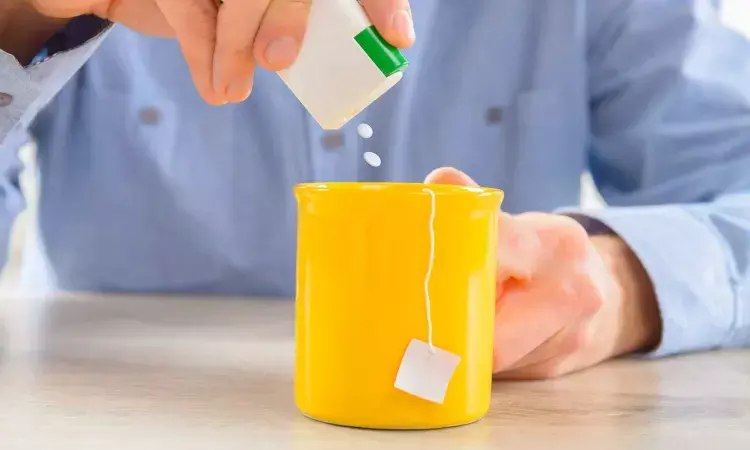- Home
- Medical news & Guidelines
- Anesthesiology
- Cardiology and CTVS
- Critical Care
- Dentistry
- Dermatology
- Diabetes and Endocrinology
- ENT
- Gastroenterology
- Medicine
- Nephrology
- Neurology
- Obstretics-Gynaecology
- Oncology
- Ophthalmology
- Orthopaedics
- Pediatrics-Neonatology
- Psychiatry
- Pulmonology
- Radiology
- Surgery
- Urology
- Laboratory Medicine
- Diet
- Nursing
- Paramedical
- Physiotherapy
- Health news
- Fact Check
- Bone Health Fact Check
- Brain Health Fact Check
- Cancer Related Fact Check
- Child Care Fact Check
- Dental and oral health fact check
- Diabetes and metabolic health fact check
- Diet and Nutrition Fact Check
- Eye and ENT Care Fact Check
- Fitness fact check
- Gut health fact check
- Heart health fact check
- Kidney health fact check
- Medical education fact check
- Men's health fact check
- Respiratory fact check
- Skin and hair care fact check
- Vaccine and Immunization fact check
- Women's health fact check
- AYUSH
- State News
- Andaman and Nicobar Islands
- Andhra Pradesh
- Arunachal Pradesh
- Assam
- Bihar
- Chandigarh
- Chattisgarh
- Dadra and Nagar Haveli
- Daman and Diu
- Delhi
- Goa
- Gujarat
- Haryana
- Himachal Pradesh
- Jammu & Kashmir
- Jharkhand
- Karnataka
- Kerala
- Ladakh
- Lakshadweep
- Madhya Pradesh
- Maharashtra
- Manipur
- Meghalaya
- Mizoram
- Nagaland
- Odisha
- Puducherry
- Punjab
- Rajasthan
- Sikkim
- Tamil Nadu
- Telangana
- Tripura
- Uttar Pradesh
- Uttrakhand
- West Bengal
- Medical Education
- Industry
Researchers develop new sweetener that is low-calorie and improves gut health

Spain: Researchers in the search for a better sweetener than the currently used ones have reported a new calorie-sweetener that is as sweet as table sugar and could also improve gut health.
The new sweetener is based on galactooligosaccharides and modified mogrosides, these substrates could be considered novel candidate prebiotic sweeteners, according to the study published in the Journal of Agricultural and Food Chemistry, foreseeing a feasible and innovative approach to target the reduction of sucrose content in food. When evaluated in human studies, this new ingredient could provide health benefits by combining sweetness and prebiotic fiber functionality.
The use of artificial sweeteners has increased worldwide because it lets people consume sweets sans calories. However, studies on animals and humans indicate that some of them can lead to increased food consumption and weight gain, as well as other negative health outcomes by stimulating appetite.
Considering the above, researchers have been in search of low-calorie or extremely sweet substances from natural sources as possible replacements. For example, galactooligosaccharides that are found in mammalian milk are low-calorie sugars with a prebiotic activity that can be an energy source for beneficial gut microbes. However, they do not have the same sweetness as table sugar. Alternatively, extracts from the luo han guo fruit contain mogrosides, compounds that are 200 to 300 times sweeter than table sugar. The off-flavors in them can be removed with enzymes.
Against the above background, F. Javier Moreno, Institute of Food Science Research, CIAL (CSIC-UAM), Nicolas Cabrera, Madrid, Spain, and colleagues aimed to take advantage of the good aspects of both natural substances, using enzymes for modifying mogrosides while simultaneously producing galactooligosaccharides for a brand-new low-calorie sweetener, both were generated through a patented single-pot synthesis.
Trained sensory panelists performed sweetness intensity in vivo. The impact on the human fecal microbiome was assessed by in vitro pH-controlled batch fermentation, and bacterial populations and organic acid concentrations were measured by qPCR and GC-FID, respectively.
The key findings of the study were as follows:
- Significant growth during the fermentation at 10 h of bacterial populations includes Bifidobacterium (8.49 ± 0.44 CFU/mL), Bacteroides (9.73 ± 0.32 CFU/mL), Enterococcus (8.17 ± 0.42 CFU/mL), and Clostridium coccoides (6.15 ± 0.11 CFU/mL) as compared to the negative control counts for each bacterial group (7.94 ± 0.27, 7.84 ± 1.11, 7.52 ± 0.37, and 5.81 ± 0.08 CFU/mL, respectively) at the same time of fermentation.
- The corresponding significant increase in production of SCFA in mMV-GOS at 10 h of fermentation, was mainly seen in acetate (20.32 ± 2.56 mM) and propionate (9.49 ± 1.44 mM) production compared to a negative control at the same time (8.15 ± 1.97 and 1.86 ± 0.24 mM), is in line with positive control (short-chain fructooligosaccharides; 46.74 ± 12.13 and 6.51 ± 1.91 mM, respectively) revealing a selective fermentation.
The researchers conclude, "these substrates could be considered as novel candidate prebiotic sweeteners, foreseeing a feasible and innovative approach targeting the sucrose content reduction in food."
"This new ingredient could provide health benefits when assessed in human studies by combining sweetness and prebiotic fiber functionality," they wrote.
Reference:
J. Agric. Food Chem. 2022, 70, 29, 9048–9056. Publication Date:July 13, 2022. https://doi.org/10.1021/acs.jafc.2c01363
Dr Kamal Kant Kohli-MBBS, DTCD- a chest specialist with more than 30 years of practice and a flair for writing clinical articles, Dr Kamal Kant Kohli joined Medical Dialogues as a Chief Editor of Medical News. Besides writing articles, as an editor, he proofreads and verifies all the medical content published on Medical Dialogues including those coming from journals, studies,medical conferences,guidelines etc. Email: drkohli@medicaldialogues.in. Contact no. 011-43720751


